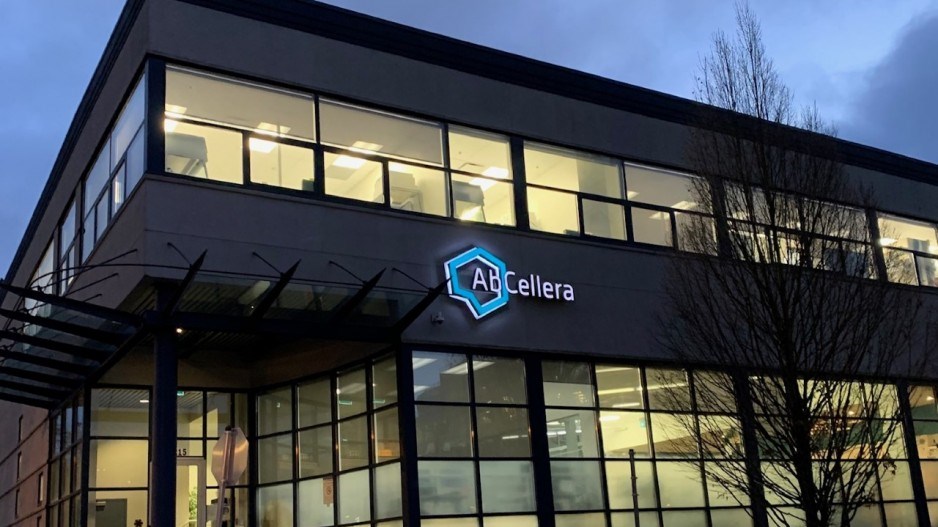Share prices of AbCellera Biologics Inc. (Nasdaq:ABCL) nearly tripled over the course of their first day of trading following a monster initial public offering for the Vancouver biotech firm.
The West Coast company saw share prices close Friday (December 11) at US$58.90, bringing its market value to more than US$15.7 billion.
Shares debuted at US$20 but trading was halted from the opening of markets at 6:30 a.m. PT to just before 9 a.m. PT.
When the hold was released, shares opened at US$61 and surged as high as US$71.91 before easing off gradually throughout the remainder of the day.
AbCellera had originally sought to raise US$200 million through an IPO before revising that to as much as US$450 million earlier this week.
It again boosted its ambitions by revealing late Thursday it was seeking to raise US$483 million by selling more than 24 million common shares at US$20 each.
Its underwriters also have a 30-day option to purchase 3.6 million common shares at US$20, potentially giving way to another US$72 million.
The IPO is being underwritten by Credit Suisse, Stifel Financial Corp., Joh. Berenberg, Gossler & Co. KG, SVB Leerink and BMO Capital Markets.
The firm has been prepping for an IPO for much of the fall, tapping prominent figures such as billionaire Peter Thiel, the co-founder and former CEO of PayPal Holdings Inc., for its board of directors; as well as acquiring fellow biotech Trianni Inc. to bolster its expertise in therapeutic antibodies.
AbCellera had US$28 million in revenue in the 12 months ending on September 30 and lays claim to 174 employees around the globe, according to a prospectus released last month.
Its profit during the first nine months of 2020 came in at US$1.9 million.
“While the vast majority of our historical revenue reflects upfront payments from research programs, we believe the long-term value of our business will be driven by downstream milestone and royalty payments,” the prospectus stated.
The company has so far entered into 94 discovery programs, 71 of which include the potential for milestone and royalty payments from its partners.
Last month, Health Canada approved the use of an antibody treatment developed in partnership between AbCellera and American pharmaceutical giant Eli Lilly and Co. (NYSE:LLY).
The treatment, known bamlanivimab, isn’t meant to be administered to the general population but to those already infected with COVID-19.
Lilly released proof-of-concept data in September showing reduced hospitalization rates for patients treated with the antibody therapeutic.
The pharmaceutical company reported the rate of hospitalizations and emergency room visits for those treated with bamlanivimab was 1.7% compared with 6% for those treated with a placebo.
Lilly said this represents a 72% risk reduction, while the treatment was “well-tolerated, with no drug-related serious adverse events reported” among those taking bamlanivimab.
Meanwhile, the U.S. government inked a deal with Lilly in October, paying US$375 million for 300,000 vials of the therapeutic.
And back in May, Ottawa earmarked $175 million for the Vancouver biotech to pursue the development, manufacturing and distribution of therapeutic antibodies.
This came just weeks after AbCellera and Lilly announced a partnership to develop a new drug for the treatment and prevention of the COVID-19 virus, with Lilly tapping the Vancouver biotech’s platform to zero in on antibodies generated in a natural immune response to the novel coronavirus.
The antibody treatment was developed over three months with co-operation from Vaccine Research Center at the National Institute of Allergy and Infectious Diseases after the organizations identified it from a blood sample taken from one of the first U.S. patients to recover from the coronavirus.
The first patients were dosed at medical centres in the U.S., including the NYU Grossman School of Medicine and L.A.’s Cedars-Sinai.




